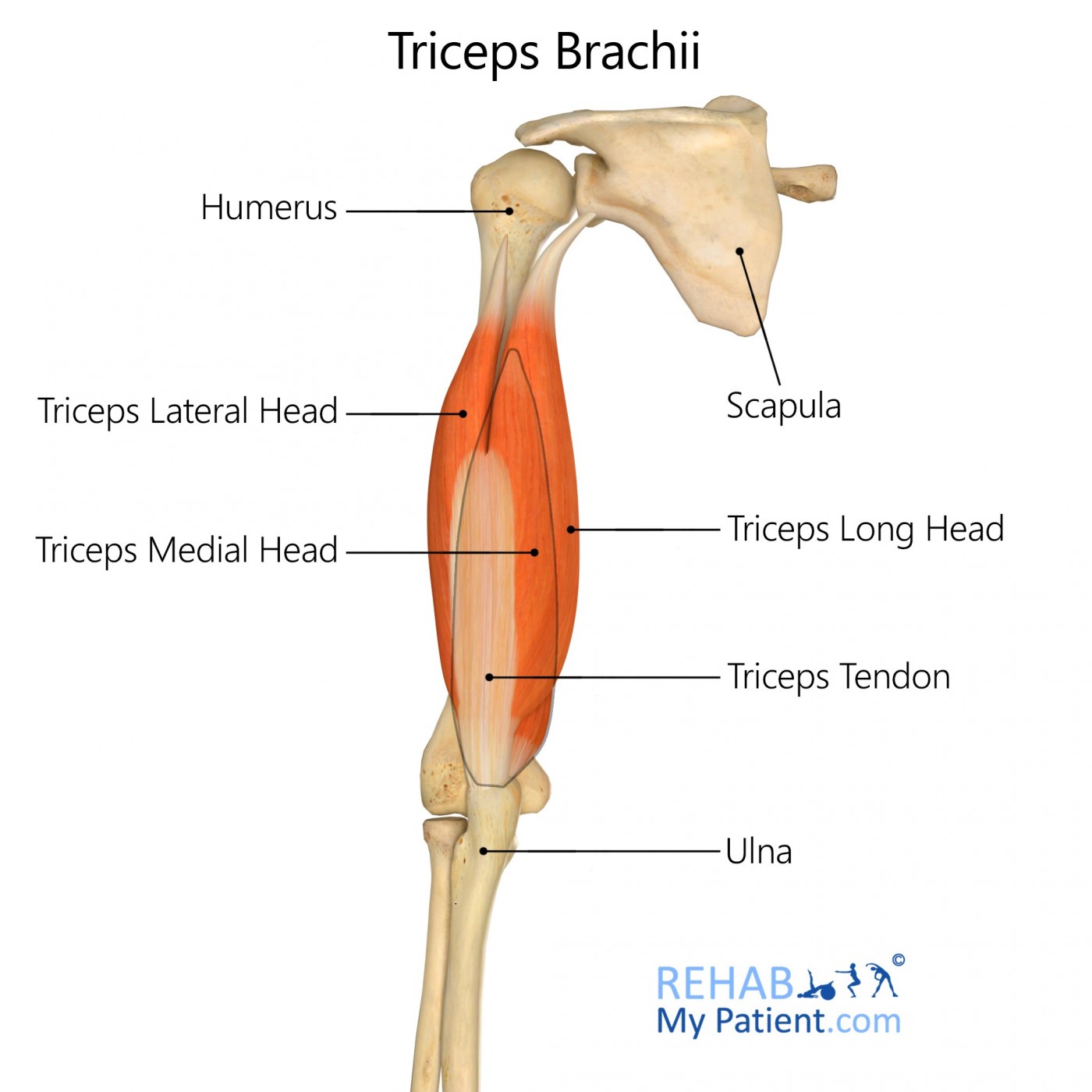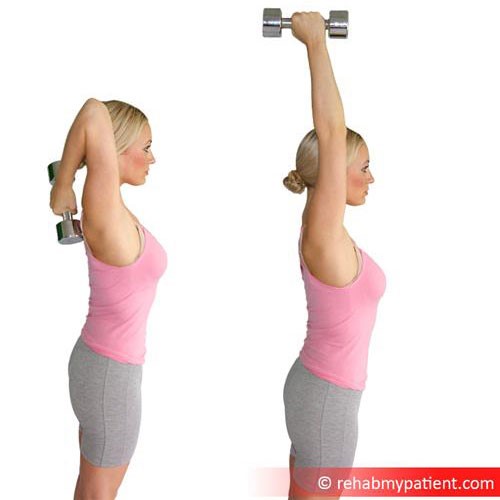
General information
The triceps brachii is a relatively large muscle located on the arm, running down the back of the humerus and ending at the top of the ulna. This muscle has the primary responsibility for extending the elbow joint. It is named for its three heads, the medial head, lateral head and long head.
Literal meaning
Three-headed muscle of the arm.
Interesting information
The triceps brachii are muscles within the upper arm connecting the bones of the arm. The triceps are the main muscles responsible for extension of the arm, which they are able to do by pulling the ulna at the elbow. They work opposite the biceps. Most of the time, an injury to the muscle is the result of lifting more than one should or performing a series of repetitive movements. Failure to warm up before engaging in an exercise routine increases the chance of injury to the triceps brachii. Obesity, overdeveloped biceps and poor diet are some of the other factors contributing to problems with the triceps brachii.
Origin
Infraglenoid tubercle out of the joint and scapula capsule for the shoulder.
Oblique ridge within the upper half in the posterior humeral shaft.
Medial and posterior surfaces for the humeral shaft underneath the insertion point for the teres major and slightly proximal to the medial head..
Insertion
Upper surface for the olecranon process for the antebrachial fascia and the ulna.
Function
Elbow joint extension.
Aids in extending the shoulder when the arm is flexed.
Long head aids in stabilizing the base of the shoulder joint.
Nerve supply
Radial nerve C6-C8.
Blood supply
Posterior circumflex humeral artery for the muscle from proximal to distal.
Muscular branches out of the profunda brachii artery.
Inferior and superior ulnar collateral arteries.
Recurrent interosseous artery.

Relevant research
Ruptures to the triceps brachii are rare, but partial lesion is not so well defined, so management guidelines are not as clear for the active athlete. In this particular study, a 28-year-old man was operated on for a partial rupture to the triceps brachii. He went through a transosseous olecranon suture of the tricipital tendon, as well as a side-to-side suture to the healthy residual tendon. Two years later the patient was assessed using a follow-up DASH score. It was found that he had been able to return to sports four months after the surgery and had painless elbow mobility with no effusion. The extension strength was found to be comparable to the healthy side. The study authors concluded that they believe it beneficial to operate on patients with partial rupture of triceps brachii, noting that postoperative management is key.
Khiami F, Tavassoli S, De Ridder Baeur L, Catonné Y, Sariali E. Distal partial ruptures of triceps brachii tendon in an athlete. Orthop Traumatol Surg Res. 2012;98(2):242-246. doi:10.1016/j.otsr.2011.09.022
Triceps brachii exercises
Overhead extension
This exercise can be performed either seated or standing up using a dumbbell or barbell. Grab the barbell and lift it above the head with the arms at shoulder width and the palms facing away from the body. Slowly bend the elbows and forearms back in a 90-degree angle so that the barbell is now behind the head. The upper arms should remain static throughout the exercise. Slowly return the dumbbell to its starting position. Repeat for a total of 10 repetitions over three sets. It is often easier to do the exercise with two hands holding the dumbbell above the head.

Sign Up
Sign up for your free trial now!
Get started with Rehab My Patient today and revolutionize your exercise prescription process for effective rehabilitation.
Start Your 14-Day Free Trial